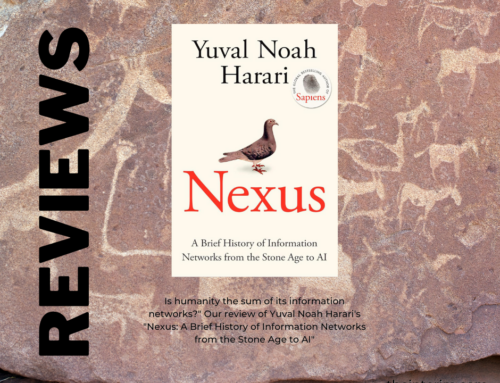“Any parent or teacher who does not set boundaries of acceptable behaviour, who does not instill a sense of ethics, who in other words, does not censor the activities of his or her children is doing them and society a considerable disservice, for censorship is an act of love for those who do not have the life skills to make competent choices for themselves” The Journal of the Reading and Literacy Institute (RALI) May, 1992.
It would be difficult to reconcile the content and methodology of current programs, texts and resources presently being offered through the Nova Scotia Department of Education with the above statement.
To illustrate this point, I will highlight a few examples, the most recent being the Elementary School health program, entitled HEALTH. It is laced with the values clarification jargon of feelings, choices and decision-making reminiscent of PDR (Personal Development and Relationships).
HEALTH’s horrors
According to the Teachers’ Guide, we may expect to find elements of this program anywhere in the curriculum. Teachers are advised that there are many opportunities for its integration in science, social sciences, language arts, and mathematics. This integration makes it impossible for students to opt out of the program unless they leave the public school system. So now there’s no chance that a child might escape explicit details of male-female biological differences.
Teachers are given explicit instructions about the importance of using proper and basic terminology for the various body parts. (And it’s important to note here that we are now talking about instruction for primary students).
Children are to visit both boys’ and girls’ washrooms because, HEALTH says, “The difference will provide a natural opportunity for a matter-of-fact explanation of basic male-female differences.”
It is as if we were talking about subjects geared to the intellect rather than sex-related terms involving the passions as well.
And, oh yes, teachers are told when doing this to emphasize the importance of privacy.” Privacy? A subject which by nature is private, personal and intimate hardly lends itself to discussion in the classroom, especially in mixed groups.
The desensitization process
The program places emphasis on the importance of children receiving the correct information from a teacher who can comfortably and supportively provide answers. Some teachers may find the sections “Background Information for Teachers” difficult. However, those who have been desensitized will probably find nothing wrong with it.
The desensitization process is achieved through special workshops, seminars and sessions that gain access to the sexual attitudes and sensibilities of teachers so that they can get rid of any “hang-ups” they may have and be properly deprogrammed. They then acquire what has been described by ethno-psychologist William Coulson as a quasi-religious conviction about the rightness of what they are doing. In 1968 Abraham Maslow, after he quit teaching teachers, said, “They have almost near paranoid certainty about their own absolute virtues and correctness of what they are doing and are not going to be deterred.
Feeling good
Today’s teachers have been given a new job description: that of facilitator, encourager, supporter and developer. No longer will they be required to teach in the traditional sense. Rather, they will assume the role of therapist. Perhaps that makes it easier to understand why HEALTH lists as its first selected teacher resource 100 Ways to Enhance Self Concept in the Classroom (Jack Canfield and Harold Wells). It is a teacher resource book providing 100 activities that help children feel good about themselves.
Enhancing the self
This new concept is highlighted throughout the program, starting in the early grades where in a sample learning experience it is recommended that each child start a “Me Book.” This fits nearly into the self-esteem movement, the reasoning being that if the children feel good about themselves, they will achieve.
The popular techniques of psychotherapy now being used in the classroom serve to drive children to pursuer their own selfish desires and turn them inward. This leads them away from the authority figures in their lives, away from their parents and away from God.
Yet children need the security that family and religion provide: a sense of belonging, of being loved and protected. Why else would they panic when they become lost or frightened by the unknown.
Values Clarification
Jack Canfield is a co-author of many books supporting values clarification, a methodology that undermines respect for authority by inviting children to choose their own value system. In other words, the children themselves are to decide for themselves what is right or wrong and to act on it.
On of the books co-authored by Canfield is Building Self-Esteem in the Classroom.
It recommends the use of relaxation, guided imagery, yoga, hypnotic techniques – all designed to bypass the intellect and appeal to the emotions. Much of this leads into what is generally know as “New Age”. Many of these techniques have been criticizes when used in the market-place among mature adults. How much greater might the risk be when they are experimenting on innocent, trusting young children.
Dr. William Coulson is a lecturer on the dangers of affective decision-making education – a movement he helped initiate with Carl Rogers and Abraham Maslow. He says that the value-free concept is a spin-off from non-directive psychotherapy, the basic idea being that good therapists do not tell their clients or patients how to solve their problems but to look within themselves for solutions. Similarly, classroom teachers do not direct children but encourage them to find solutions within themselves.
Errors Acknowledged
However, Coulson goes on to say in retrospect it was a terrible mistake to abandon the realm of objectivity – the public realm that the school ought to be addressing – and to adopt the realm of personal feelings and subjectivity, which is the proper subject of psychotherapy.
Psychotherapy, the says, should have remained in the clinic, where it can work for people who are motivated to seek help and understand that they do have the resources within themselves to solve their problem. For children, he explains, it is different: “Children ought not to become persuaded by their schools that all they have to do is consult themselves and somehow the world will tumble into line with what they have decided.” He says that we know this but our children do not have the intelligence to understand it and are themselves put at risk.
A pattern of failure
Coulson also warns that for children with serious problems, classroom psychotherapy is not powerful enough to help. But it is powerful enough to harm good children, who in their own home or church learn that morality is not a matter of conforming or acceding to what is given.
Finally, he informs us that Abraham Maslow dropped this work and recanted his position before he died, and that Carl Rogers in his last book in 1983 termed the whole pattern of education based on psychotherapy a pattern of failure.
Controlled studies completed at Stanford University demonstrated that students taking part in values-clarifying, feeling-centred programs about drug abuse wound up using drugs and alcohol, while those not involved abstained. The results were the same in sex-education programs using such methodology.
Other resources suggested for use in the HEALTH program are works by Robert Munch. Among those listed is The Paper Back Princess which I expect is The Paper Bag Princess. There are bizarre presentations in his work, the most frightening being his latest, “Giant,” which is downright irreverent of God and church related matters. Because of this it is being banned from some schools and libraries.
Why are we doing this?
The evidence is in, and the logical question is, why do we continue to abandon our children to this non-directive approach to education? Part of the reason is financial. There’s a great deal of money to be made marketing new products, devices and services. Non-government organizations and private companies are becoming very skillful at manipulating and infiltrating our government education and health departments.
PP-Nova Scotia
Part of the reason is organizations like Planned Parenthood.
Recently, the President-elect of Planned Parenthood Federation of Canada (PPPFC), Katherine MacDonald from Halifax, Nova Scotia, was featured in an article in SEXwise, the newsletter of Planned Parenthood – Nova Scotia (listed as a community resource in HEALTH).
In her article, Ms. MacDonald calls on PPFC to establish a stronger link with Planned Parenthood Federation of America (PPFA). PPFA is a world leader in the promotion of population control, contraceptives and abortion. This same edition announces that PPFC will receive 245,000 condoms annually from Trojan Condoms for distribution throughout Canada.
Biology
An example of the influence of Planned Parenthood and drug companies on our education system can be found in a grade X Biology textbook, Biological Science, An Ecological Approach (Green Version – Kendall and hunt Pub. Co.). This book gives a one-sided view of the population question, uses explicit diagrams in dealing with reproduction and birth-control, and includes a typical contraceptive ad. The chapter entitled “Contraception Control” states that overpopulation must be countered with birth control.
Another reason for what we are doing to our children is the growing influence of behaviourial scientists on graduate schools, teacher training curriculum development, and text book writing; the increasing involvement of unions; the failure of Canadians to respond to the growing crisis in education. What should we do? Social historian Christopher Lasch puts it this way: “Schools work best when their very limited and useful function (imparting basic skills) is clearly understood, and not diluted with never-ending fads to reform every societal ill. The classroom is one place where you need guidance, direction and authority.”




